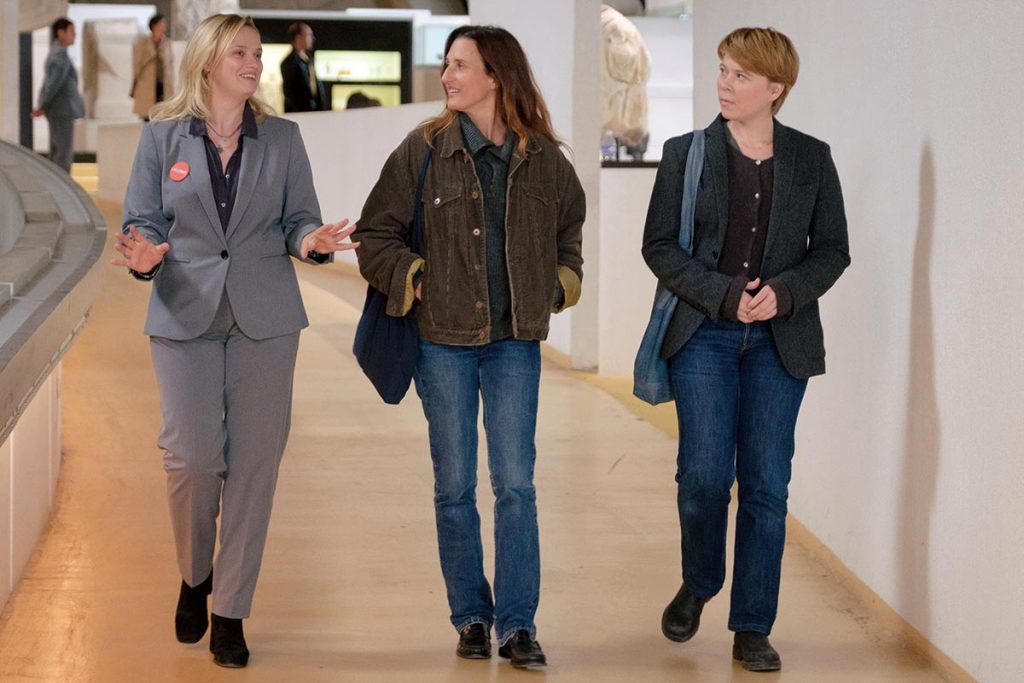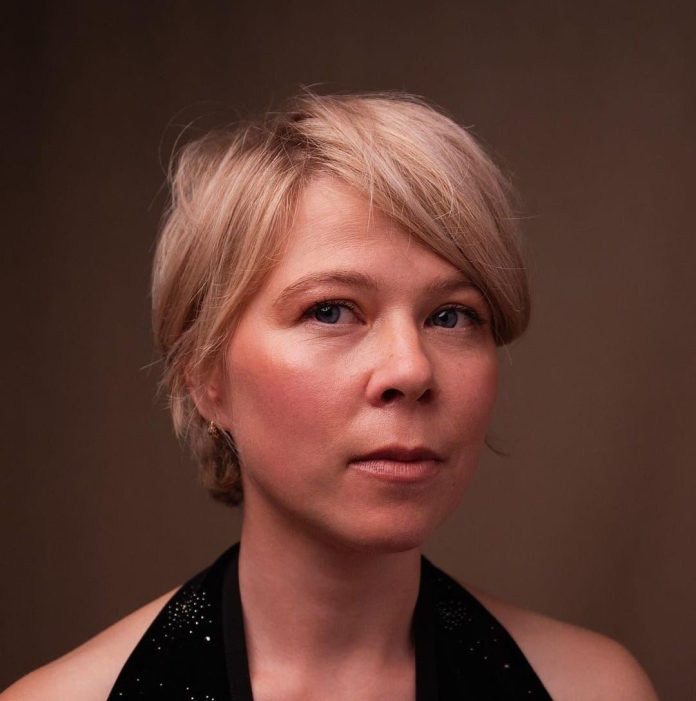India Hair made her film debut in 2010 in Before the Dawn, a thriller starring Jean-Pierre Bacri and Vincent Rottiers. Recognition came the following year with the Lumières Award for Best Female Revelation and a César nomination for her role in Noémie Lvovsky’s Camille Rewinds (2011), a comedy that became a box-office success in France.
From there, she established herself in a range of films, including Brigitte Sy’s The Astragal (2015), Alain Guiraudie’s On the Edge (2016), Hubert Charuel’s Petit paysan (2017), and Eric Gravel’s Crash Test Aglaé (2017), in which she portrayed a factory worker who travels to India after her plant is outsourced.
Over the years, she has collaborated with directors such as Anne Fontaine (Reinventing Marvin, 2017), Quentin Dupieux (Mandibules, 2020), Ursula Meier (Home, 2022), and Maiwenn (Jeanne du Barry, 2023).
India Hair chooses her roles with care, desire, and intuition. “I usually say who I’d like to work with, but if I like the script — and if it’s a director whose work I admire — I accept. It’s mostly the script that decides.”
Having appeared in the TV series The Disappearance of Kimmy Diore (2024), she doesn’t distinguish much between television and film when it comes to the creative process. “What changes is the time,” she explains, noting that in 2024 she worked on a series abroad for four months. “The directors I worked with on the series are film directors. There was no difference.”
Still, cinema remains her preference as a viewer. “It’s what makes me dream the most. The way we watch series today — all at once — it loses its sacredness. That’s why cinema is so strong.” She also misses theatre: “Collaborating, being with a cast, working on a great author.” But with children and living outside Paris, she acknowledges: “Nowadays, doing theatre, film, and series at the same time is impossible. I have to make choices.”
For now, her choices lie in cinema and television: South-East Babylon (directed by Daniel Arbide and Lucie Borlotto), Young Mothers by the Dardenne brothers — premiered at Cannes in 2024 — and That Summer In Paris by Valentine Cadic, unveiled at the Berlinale. As for the future, she already has a short film written. “A feature film? I’d like to, but I don’t know. A short film? Yes, I will.”
“My Greatest Cinematic Dream” – India Hair on working with Emmanuel Mouret

“My greatest cinematic dream was to work with Emmanuel Mouret,” India Hair says about her role in Three Friends (2024).
In the film, she plays Joan, a woman who no longer loves Victor (Vincent Macaigne) and suffers from feeling dishonest. Her best friend, Alice (Camille Cottin), reassures her: she herself no longer feels passion for her partner, Eric (Grégoire Ludig). What Alice doesn’t know is that Eric is having an affair with Rebecca (Sara Forestier), another friend in the group. When Joan decides to end things with Victor and a tragedy occurs, the lives of the three women collapse. This is the premise of Three Friends (Trois Amies, 2024), Emmanuel Mouret’s latest film, in which India Hair takes a central role in a story that, in the director’s tradition, explores the emotional complexities of love and heartbreak.
“Seeing the dream of working with Mouret come true made the experience very intense. At the same time, it was deeply unsettling — entering the artistic world of someone you admire brings great responsibility.” Admitting that this responsibility caused her some anxiety, Hair says the experience later became a major moment of learning, especially in how Mouret works with the collective and builds the film with his team. “I really liked his delicacy, his enjoyment of experimentation. It was a beautiful and deeply affecting experience.”
On set, Mouret allows the actors a great deal of freedom. “He lets us go. We build the shooting plan together when we arrive in the morning — we have, for example, the beginning and the end — and then we look for the path together, with the dialogue, rehearsing it several times.” His guidance is minimal: “He just says ‘let’s go’, and we go.” When he intervenes, it’s almost silently: he watches, approaches, shows with his body — a movement, an intonation — and walks away. “It’s very physical, non-verbal. He doesn’t say much, but we understand.”
As for her own process, India says that with so much text to memorize she adopted a daily routine of studying, almost like a method. “The most important part is listening to the other person — being present in what’s happening.” That’s why, in a recent role alongside an actress who “didn’t listen at all and just talked,” the experience was difficult: “50% of the work in this film is done by other actor. The connection is essential. And the script is very well written — I theorized a lot in my head after reading it.”
Asked about the main trait she found in her character, India answers with guilt. “She tries to be honest, and that honesty triggers chaos. Then she no longer knows how to act, she freezes — she’s afraid of hurting herself again, she loses direction, she becomes emotionally exhausted.”


